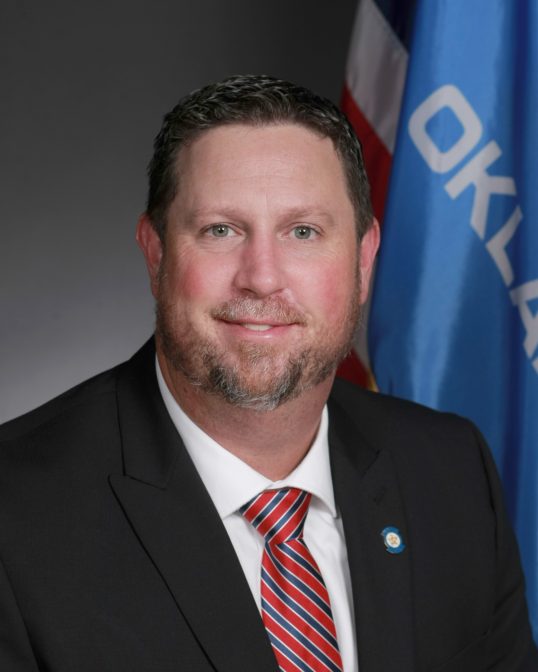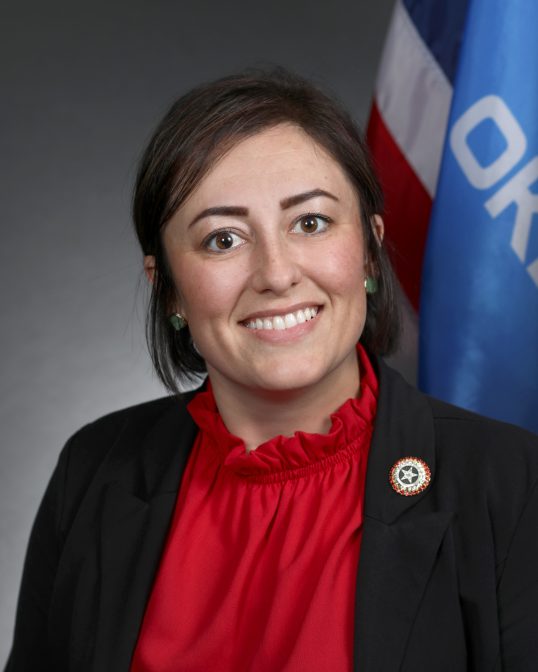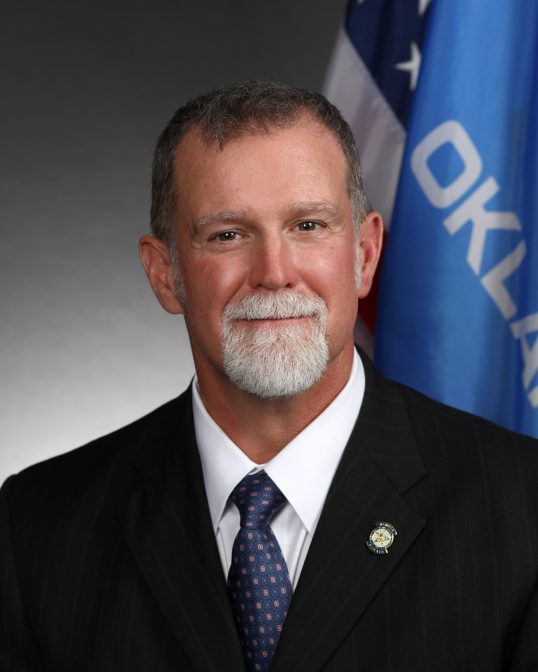
AP Photo/Rich Pedroncelli, File


AP Photo/Rich Pedroncelli, File
After passing several bills that would reduce or eliminate abortion access in Oklahoma, the Legislature advanced a bill that would decrease minors’ access to contraceptives.
The bill touches on several kinds of medication and medical care, but the author and critics focused mostly on the portions about birth control. The legislation requires all organizations that provide minors with medications — including county health departments and hospitals — to notify parents and obtain their permission before administering care.
The measure’s supporters argue that parents have the right to know whether their children are sexually active and to opt their children out of the medication. Opponents raised a wide range of concerns, including heightened teen pregnancy and potential threats to incest victims.

Sen. David Bullard, R-Durant
Senate Bill 1225 passed off of the floor on Wednesday. It had its title stricken, which means lawmakers can continue working on it and making major changes. If it passes out of the House, the Senate will have to consider it again.
Sen. David Bullard, R-Durant, said that he authored the bill because he saw a news story about a school rounding up a van full of girls, taking them to the county health department, and injecting them with three years’ worth of contraception.
In 2017, female students at Langston Hughes Academy heard a presentation about contraception by the nonprofit organization Youth Services of Tulsa. The organization provided the girls with transportation, and one of them elected to get a removable birth control implant in her arm. The mother stated that she never authorized the placement, and publicly criticized the school and facility for violating her parental rights. Federal Title X allows minors to obtain birth control without parents’ consent.
Sen. Julia Kirt, D-Oklahoma City, was one of the several female lawmakers who raised concerns about the bill before voting against it. She asked how the measure would improve the health of minors in the state.
“It’s not a matter of improving health,” Bullard said in response. “It’s a matter of parental request and requirement, so that if there is something going on with that minor, that we’re making sure that the parents are notified at the appropriate time.”
She and others said that requiring parental consent could create an insurmountable obstacle for teenagers. Sen. Kim David, R-Porter, said that although the term “minor children” might conjure the image of a 12 year old, the policy would place the same restrictions on teenagers until the day before they turn 18.
Sen. Jessica Garvin, R-Duncan, said that it could create a dangerous situation for minors experiencing sexual abuse by a family member. If victims wanted to protect themselves from pregnancy, potential abusers could interfere. Bullard noted that schools and other organizations are required to report any concerns about abuse to authorities.
Garvin presented a hypothetical situation: A 17-year-old girl is undergoing sexual abuse by her stepfather. He tells the girl that he will kill her mother if she tells anyone. She wants to protect herself from pregnancy, she doesn’t want to explain to the provider that she is experiencing abuse. Without an exception in the law, the girl would not be able to obtain birth control without getting her parents’ permission.
“What I am asking is: If a girl does not want to report sexual assault, but does want to receive preventative treatment for pregnancy, is there a stipulation or protection for that student?” Garvin said.

Sen. Jessica Garvin, R-Duncan
Bullard said no.
“If they’re not willing to talk to (the provider) about it, then no,” he said. “Because there’s going to be a point where the school (or medical provider) is going to have to have some parental permission before they can administer that contraception to them.”
Sen. Carri Hicks, D-Oklahoma City, noted the bill would exempt minors who are formally emancipated, but said that not all estranged minors undergo that process.
“I have a youth homeless shelter in my district,” she said. “That’s why this is a very important part of the bill to me — because I am learning more about the emancipation process. And the individuals who are experiencing homelessness now (would) be required to interact with maybe a family that has kicked them out of their house.
Hicks asked whether there would be protections for minors in those cases. Bullard said he didn’t have an answer, and in response, moved to strike the title.
“Striking title” is a common practice for bills that still need a little more work. The state constitution requires all bills to have clear, concise titles before they can go into law. So with the title stricken, the bill isn’t allowed to become law. It is like hitting the pause button, and it lets lawmakers make changes to the bills. They have to do this because of legislative deadlines. There are deadlines for bills to make it through committee and off the floor in each chamber. If they don’t get a vote before those deadlines, bills automatically die. Thursday is the deadline for bills to pass off the floor in their chamber of origin. So all Senate bills that don’t get passed off of the floor by Thursday automatically die. Because SB 1225 passed off the Senate floor before the deadline, it won’t die this week. But, if it makes it out of the House, it won’t go to the governor’s desk for a signature to go into law. It will head back to the Senate.

Sen. Warren Hamilton, R-McCurtain
One male member raised concerns about the bill during the hearings’ question session. Sen. Warren Hamilton, R-McCurtain, indicated the bill could be too lax. He raised concerns about the exemption that allows minors who are or who have been pregnant to obtain birth control without a parent’s consent.
“Why are we giving a child — who has obviously made a poor choice — that level of autonomy over their health and the health of another human being, in the case of the unborn child?” he said.
He later added, “My point that I’m worried about is that potentially a child could be sexually active, and a parent would be deprived of that knowledge, uder some child-school confidentiality agreement that this bill may — intentionally or unintentionally — foist upon unsuspecting parents.”
Ultimately, Hamilton was one of the 11 Senators who voted against the bill, which passed with 31 votes.
Kirt said the vote seemed out of step with the spate of abortion bills that had been passing off of the floor with broad support.
“We had many on this floor stand last week and say that reducing abortion is the most important thing that our state faces,” she said. “We cannot pass this bill and reduce abortion.”